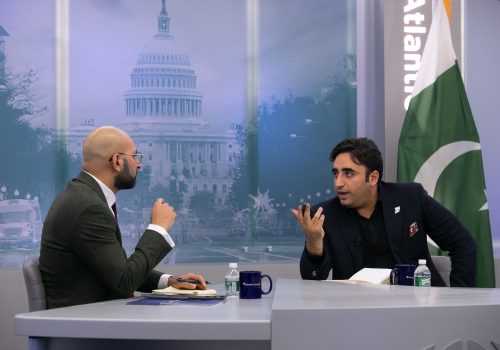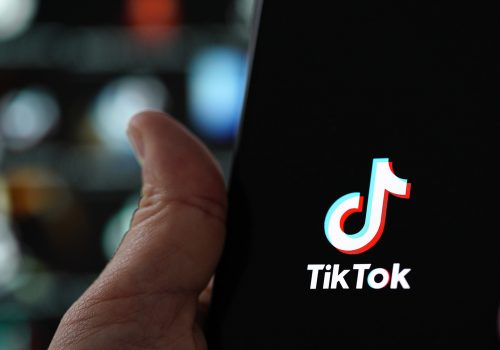On March 5, 2023, the Pakistan Media Regulatory Authority (PEMRA) banned television channels in the country from broadcasting former prime minister Imran Khan’s speeches and news conferences, arguing that he was “attacking the state’s institutions and promoting hatred.” Only hours later, Khan challenged the decision through the Lahore High Court, arguing that the ban was “in excess of the jurisdiction vested in it and without having regard to the constitutional rights guaranteed under Articles 19 and 19-A of the Constitution.”
These developments come amid ongoing instability in the country, with the former prime minister continuing to criticize retired army chief General Qamar Javed Bajwa, who Khan argues played a role in ousting him from power in April 2022. Khan has stated a desire to engage with Pakistan’s current military chief General Asim Munir “for the betterment of the country.”
This is not the first time that television channels have been barred from airing speeches made by Khan or other political leaders: a similar order banning his speeches was issued in November 2022; former prime minister Nawaz Sharif’s speeches were banned in October 2020; and former president Asif Ali Zardari’s interview was taken off air in July 2019.
Growing polarization and instability in the country have increased the likelihood that as elections draw near, curbs on speech, largely limited thus far to television channels, may extend to internet platforms like YouTube, Facebook, and Twitter.
For example, on September 6, 2022, YouTube encountered disruptions across Pakistan ahead of Khan’s speech at a rally. This was not the first such disruption—NetBlocks confirmed that a similar disruption also occurred on August 21, 2022, when Imran Khan was making another public speech. In addition, Wikipedia was blocked (and subsequently unblocked) by the Pakistan Telecommunications Authority (PTA) a few weeks ago for its failure to “remove or block allegedly sacrilegious content.”
Other notable examples in the recent past include TikTok, which has been banned and unbanned on numerous occasions, and YouTube, which was blocked in the country back in 2012 and was only unblocked by the PTA more than three years later.
These developments make clear that the PTA indeed has the capability to disrupt internet services across Pakistan on a whim, something that journalist Abid Hussain pointed out as far back as April 2021 on Twitter. To further control access to the internet, the PTA has also been seeking to limit the use of virtual private networks in the country.
As the conflict between the current government, the military establishment, and Imran Khan’s Pakistan Tehreek-i-Insaf party sharpens ahead of elections—Punjab, Pakistan’s most populous province, is expected to go to elections on April 30—further curbs on expression and disruptions to the internet, especially platforms like YouTube, Twitter, WhatsApp, and Facebook, cannot be ruled out.
In recent months, US companies and US government stakeholders have often chosen not to react to these developments, preferring to adopt a wait-and-watch approach. In addition, they have followed a strategy to engage privately and discreetly, hoping to positively influence government stakeholders through private conversations.
As the crisis in Pakistan deepens, it is time for diplomatic and business stakeholders with an interest in strengthening its democracy and maintaining a largely open internet in the country to shift their approach.
Given the evolving situation, these stakeholders should consider the following steps to proactively deter further curbs on expression on the internet in Pakistan:
- Enhance level of engagement with domestic civil society: Recent weeks have seen a flurry of concerning developments in Pakistan, with the recent PEMRA order being the key development. US companies and diplomats must deepen conversations with civil society stakeholders, especially the digital rights community that has been voicing these concerns for years.
- Proactively communicate concerns to Pakistani government officials: Ongoing diplomatic conversations between Islamabad and Washington have focused on the potential for deepening investment in the country’s technology sector. The PTA’s recent and past actions, however, undermine confidence in Pakistan’s internet economy and it is important that the negative economic impact of arbitrary bans and disruptions to the internet is clearly communicated to Pakistani stakeholders.
- Build new alliances with the technology and content creator ecosystem: In private conversations, members of Pakistan’s burgeoning technology and content creation ecosystem continue to express growing concern over curbs on freedom of expression. These stakeholders are domestic allies for companies like Meta, Google, and Twitter. However, limited interactions and collaboration with these stakeholders mean that more often than not, a united front is not presented to deter Pakistani government stakeholders from taking adverse actions that curb expression, undermine democracy, and hurt confidence in the country’s digital economy.
The coming months will be a challenging period for Pakistan’s flawed and floundering democracy. This challenge will be compounded by the state’s own capabilities and predilections to curb expression both in the traditional media and the internet.
With the PTI and Imran Khan possessing a strong advantage in their ability to digitally percolate party messaging through Pakistani society, the government and its institutions may be incentivized to take drastic measures to disrupt internet services and platforms that allow Khan to bypass television channels who may not air his speeches. As elections draw near, the likelihood of such actions is increasing. For this reason, it is important for US stakeholders—including private sector companies—to proactively monitor the evolving situation and develop strategies to deter such actions.
Doing so may perhaps safeguard Pakistan’s internet economy, its democracy, and the global reputation of internet platforms that are vital to public discourse within and outside Pakistan.
Uzair Younus is director of the Pakistan Initiative at the Atlantic Council’s South Asia Center. He also is the Vice President at The Asia Group.

The South Asia Center is the hub for the Atlantic Council’s analysis of the political, social, geographical, and cultural diversity of the region. At the intersection of South Asia and its geopolitics, SAC cultivates dialogue to shape policy and forge ties between the region and the global community.
Related content
Image: Pakistan's former Prime Minister, Imran Khan, along with his supporters walks as he leaves the district High Court in Lahore, Pakistan February 20, 2023. REUTERS/Mohsin Raza TPX IMAGES OF THE DAY



